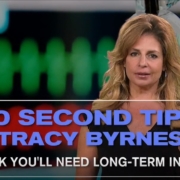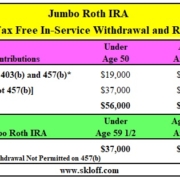Credit Shelter Trust (CST) – The Independent Press – 10/07/09
The Independent Press
Money Matters – Skloff Financial Group Question of the Month – October 7, 2009
By Aaron Skloff, AIF, CFA, MBA
Q: What is a Credit Shelter Trust and can it help us reduce or eliminate our federal and New Jersey estate taxes?
We all know the old saying that there are only two things in life you cannot avoid: death and taxes. While we cannot avoid death, with careful planning estate taxes can be reduced and sometimes avoided completely.
If the value of your estate is less than $3.5 million and you pass in 2009, you are exempt from federal estate taxes. Go over the limit and the tax bite can be brutal. In 2009, the maximum federal estate tax rate is a whopping 45%.
If the value of your estate is less than $675,000 and you pass in 2009, you are exempt from New Jersey state estate taxes. Exceed the limit and the tax bite would be in addition to any federal estate taxes. In 2009, the maximum New Jersey estate tax rate is 16%.
Fortunately, both the federal and New Jersey state estate tax laws include a marital deduction that permits the spouse that passes to transfer their entire estate to the remaining spouse, free of taxes — no matter the size of the estate. On the surface this seems like an easy solution, yet foregoing either your $675,000 New Jersey state or $3.5 million federal exemption could create an even larger tax burden for future beneficiaries when the remaining spouse passes.
One solution to this problem is the Credit Shelter Trust, sometimes called a bypass trust.
The trust comes alive, as defined by the wills, when the first spouse passes. To maximize the tax benefits, the wills dictate the funding of the Credit Shelter Trust at the maximum amount permitted by the exemptions in that year. Although most trusts name the children as the beneficiaries, the remaining spouse can utilize the trust for reasonable living expenses.
Things could get ugly in 2011. In 2010, the federal estate tax is repealed – meaning there is no estate tax, although this could change by the time 2010 rolls around. In 2011, the exemption returns with a relatively modest amount, $1 million. To add insult to injury, the maximum federal estate tax rate jumps to an exorbitant 55%.
Do not forget about your will. Without a legal will that clearly defines your intentions and what person or entity is to execute them — it is as good as useless. Recent statistics show a full 70% of U.S. adults do not have a valid will.
Aaron Skloff, Accredited Investment Fiduciary (AIF), Chartered Financial Analyst (CFA), Master of Business Administration (MBA) is CEO of Skloff Financial Group, a Registered Investment Advisory firm. He can be contacted at www.skloff.com or 908-464-3060.












